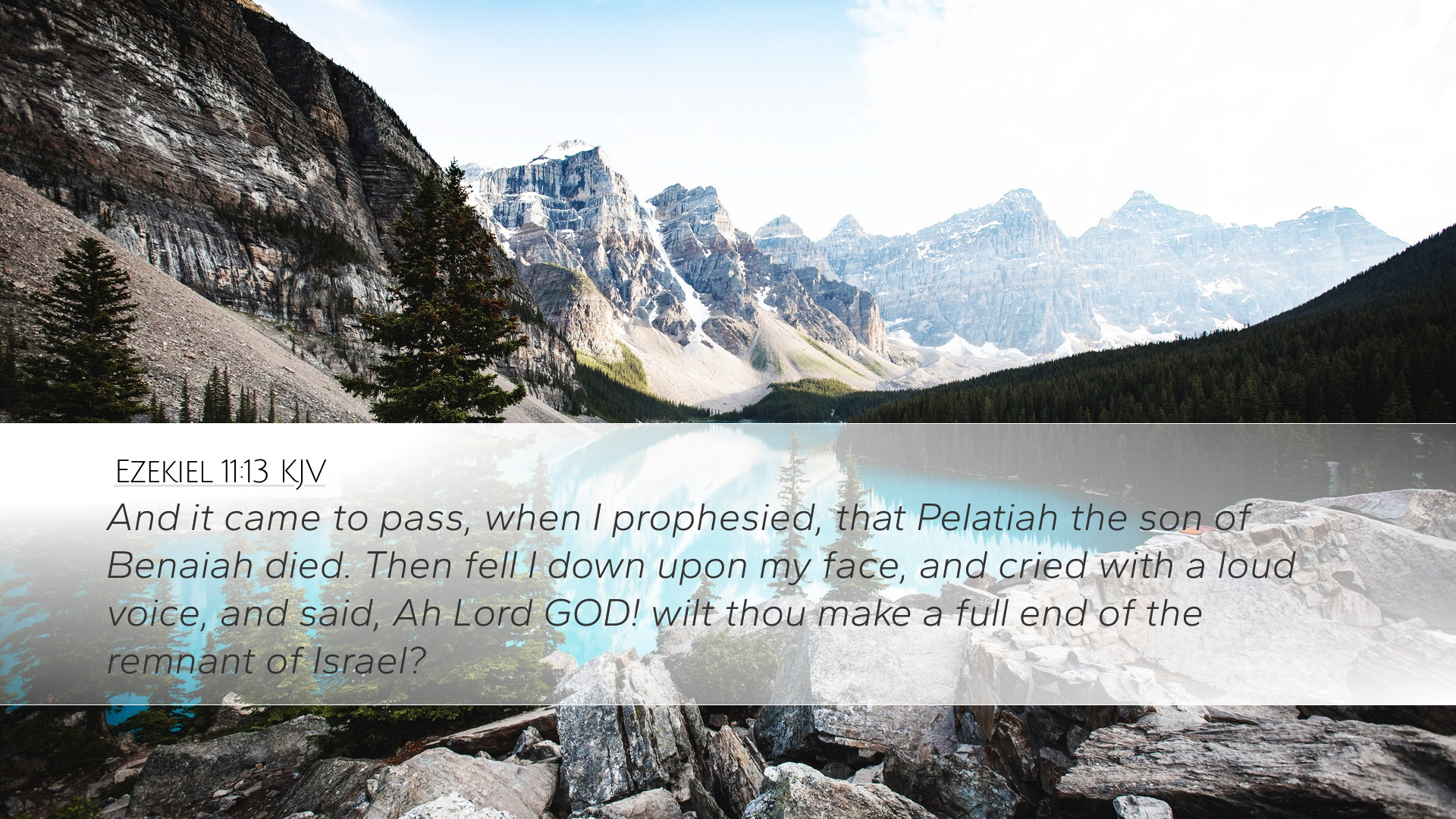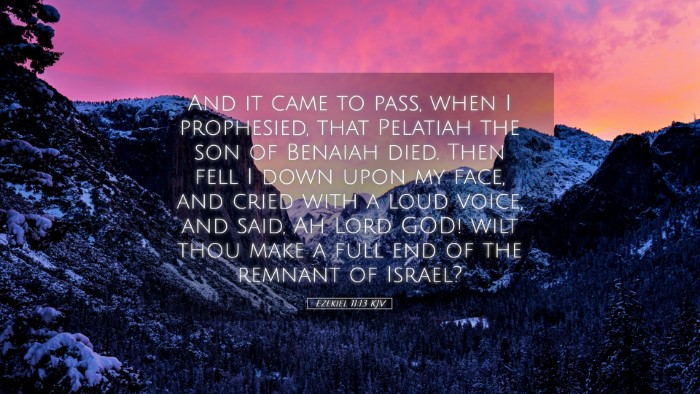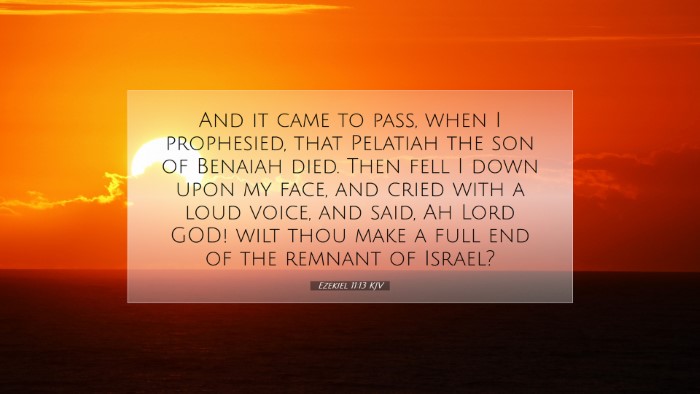Ezekiel 11:13 Commentary
Verse Overview: Ezekiel 11:13 records a profound moment in the prophetic ministry of Ezekiel, capturing the emotional and theological tensions within the context of Jerusalem's impending judgment.
Text of Ezekiel 11:13
“And it came to pass, when I prophesied, that Pelatiah the son of Benaiah died. Then I fell down upon my face, and cried with a loud voice, and said, O Lord God! wilt thou make a full end of the remnant of Israel?”
Contextual Background
The Book of Ezekiel is situated during the Babylonian exile, specifically addressing the people of Jerusalem who were exiled after the siege of 586 B.C. At this juncture, the prophet Ezekiel is tasked with conveying messages of both judgment and hope to a people grappling with their identity and faith.
Cultural and Historical Insights
- Jerusalem’s Apostasy: The city had become synonymous with sin and rebellion against God, leading to severe consequences.
- The Role of Prophets: As a prophet, Ezekiel not only speaks on behalf of God but also embodies the pathos of divine judgment.
- The Significance of Pelatiah: Pelatiah being named specifically could indicate his importance as a leader or representative of Israel’s remnant.
Commentary Analysis
Matthew Henry’s Insights
Matthew Henry emphasizes the immediacy of the prophecy and the profound emotional response that it evokes in Ezekiel. The death of Pelatiah, a notable figure, symbolizes the stark reality of judgment about to fall upon the people of Jerusalem. Henry notes that Ezekiel's reaction – falling on his face and crying out to God – reflects a deep intercessory heart.
Albert Barnes’ Perspective
Albert Barnes highlights the significance of the prophetic act itself. He delineates the connection between God’s judgment and the fate of individuals within the community. Barnes asserts that Pelatiah’s death serves as a divine sign, emphasizing that the judgment is not merely collective but personal, underscoring the severity of the situation for the leadership of Israel. He also suggests that Ezekiel's loud cry to God indicates a desperate plea for mercy amidst impending doom.
Adam Clarke’s Commentary
Adam Clarke delves into the emotional depth of this verse, interpreting Ezekiel's lament as a reflection of prophetic empathy. Clarke argues that this passage shows Ezekiel's profound concern for the fate of the remnant of Israel. He points to the dual themes of judgment and mercy, illustrating that while God’s justice is inevitable, there remains a lingering hope for the faithful. Clarke further emphasizes that this moment encapsulates the struggle between divine retribution and the desire for restoration.
Theological Implications
This verse reveals key theological implications regarding the nature of God, judgment, and intercession.
- The Nature of God: God's justice is uncompromising, yet it coexists with His mercy. Ezekiel’s intercession demonstrates that even in judgment, God listens to the cries of His prophets.
- The Role of Intercession: Ezekiel's actions underline the importance of prayerful intercession for others, a theme prevalent throughout Scripture.
- Hope Amid Judgment: The questions posed by Ezekiel reveal a tension between the reality of judgment and the hope that a remnant may remain, pointing forward to the restoration yet to come.
Practical Applications
This verse offers several applications for contemporary readers, especially for pastors and theologians.
- Character of Leadership: Leaders must be aware of their spiritual influence and responsibility. The death of Pelatiah signifies that leadership carries weight before God.
- The Importance of Lament: Pastors should embrace the biblical tradition of lament, modeling a path of emotional honesty that can lead to healing.
- Courage to Speak Truth: Like Ezekiel, we are called to prophetically address our contemporaneous realities, no matter how challenging they may be.
Conclusion
Ezekiel 11:13 stands as a powerful reminder of the gravity of prophetic ministry, the intertwining of judgment and mercy, and the ongoing call for intercession. Pastors and scholars studying this verse are encouraged to reflect on the weight of God's word and the implications it holds for both individuals and the community of faith.


